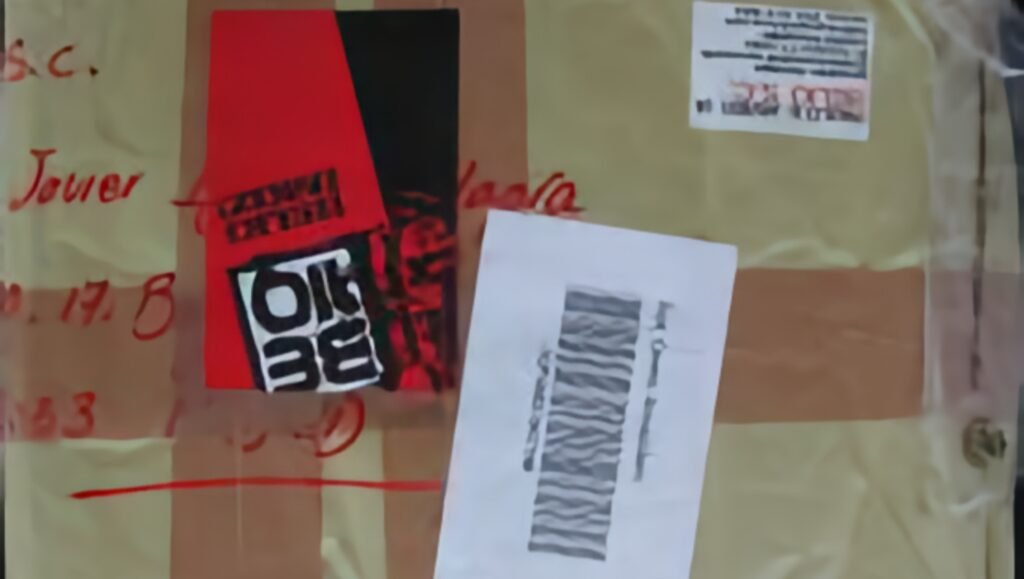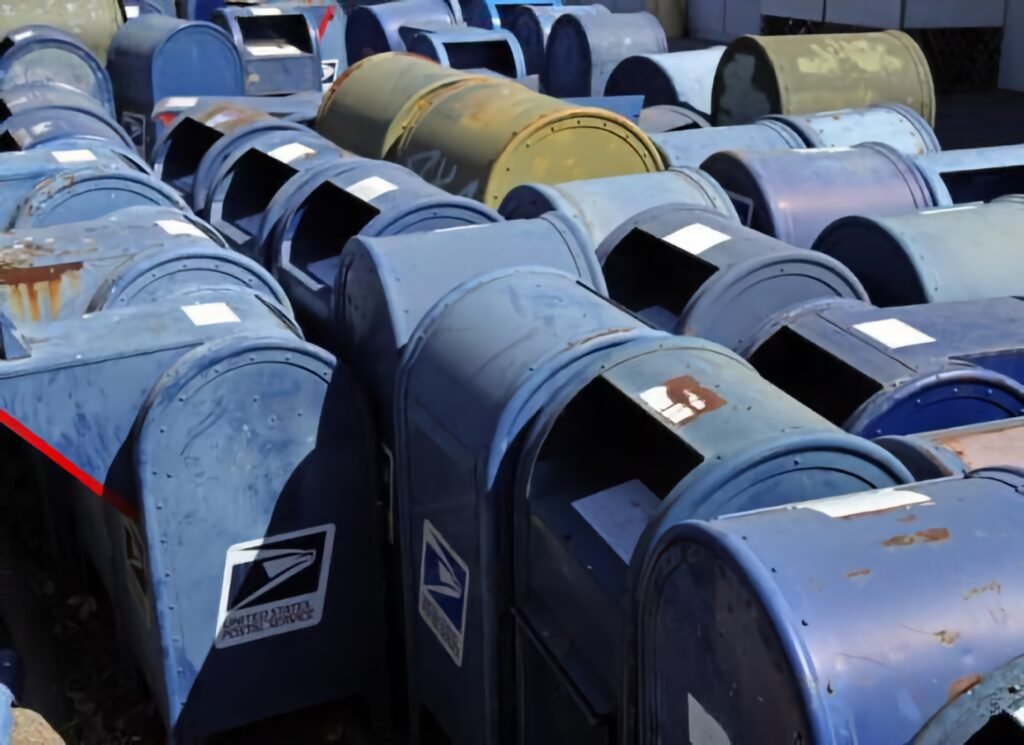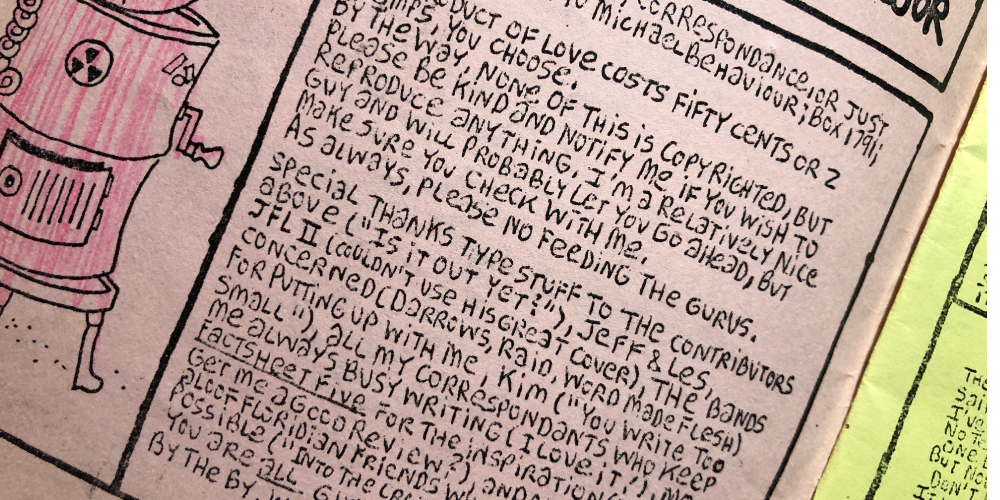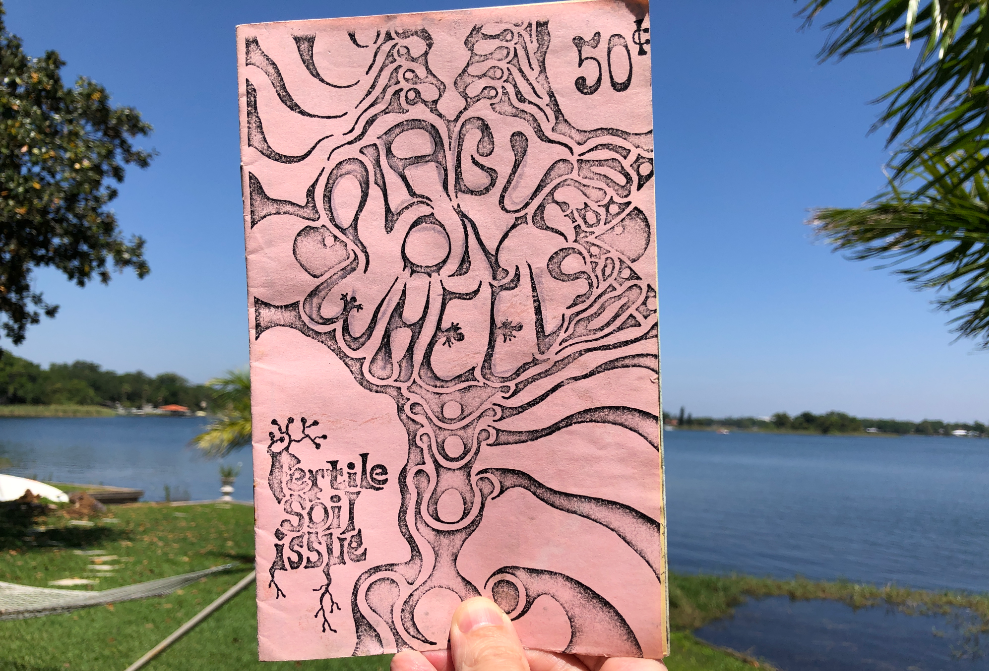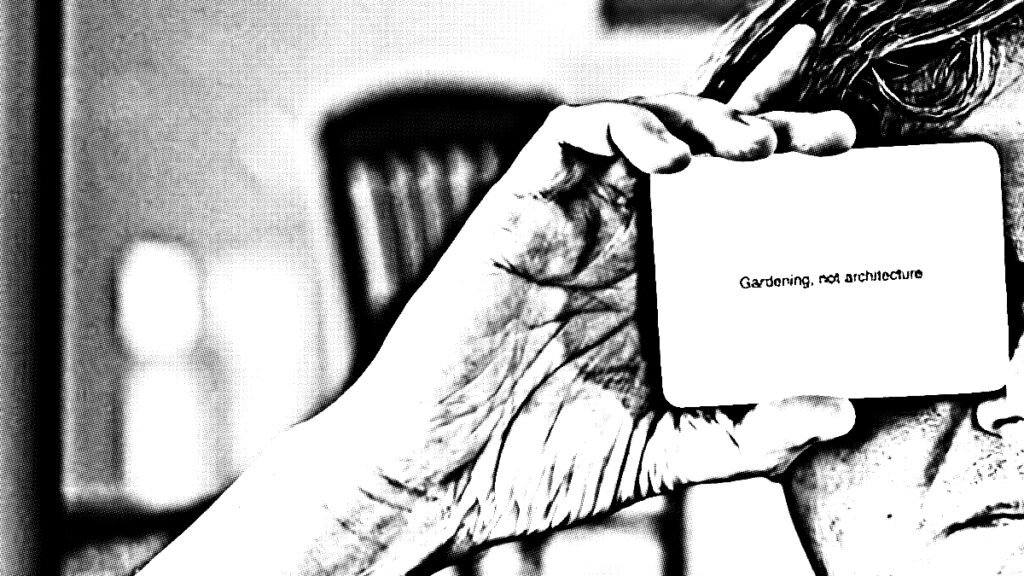
There was an article about me yesterday in the Orlando Weekly. Written by long-time friend Daniel Fuller (who you may remember as danielfuzztone), the piece is a sort of ‘where is he now?’ explainer for the curious. Of course, I’m not hiding — I’m here on the blog and involved in many public-facing projects. But, locally, I’ve left the scene behind. Remember: I was a Q-Burns Abstract Message once, and for a decade or more, you could find me DJ’ing in Orlando at least a few times each month.
Daniel did a fantastic job summarizing what I’m up to. And the article is fascinating (at least to me) when paired with a prior Orlando Weekly profile from 1997, also written by Daniel. If only I knew then what I know now etc. etc.
There are a few things in the article I feel like elaborating on. I thought about calling this the ‘director’s commentary,’ but, in that comparison, I think Daniel would be the director. So these are my liner notes:
“I got into DJing initially because it seemed like an extension of what I was really into as a punk rock kid … I was really into the idea of the band being the facilitator for the show; they weren’t necessarily the stars.”
The main draw of punk rock for me in my teenage years wasn’t the music, though I liked a lot of that, too. Instead, it was the concept of fans and bands occupying a level playing field. One was as crucial to the scene, the show, and the ‘infrastructure’ as the other. As a result, punk rock felt like a co-op. (Here’s the point where, once again, I recommend Michael Azerrad’s Our Band Could Be Your Life. This book describes the grassroots independent music scene that shaped all my opinions and feelings on how decentralized communities really work.)
As I grew up, punk rock did, too. Suddenly, many of these bands were preening on magazine covers and making major label compromises. They became the stars, and we became the fans in the crowd, a hierarchical separation. I lost interest.
Then, I discovered underground dance music around 1990. At that time, the independent dance/house/techno scene had a lot of the elements that brought me to punk rock: the dancefloor as equal (or maybe more critical) to the DJ, a self-distributed ethos, and an international network furthering the music through zines, small clubs, and independent distributors. Of course, there were always DJ ‘stars.’ But what interested me were the scenes that developed around specific labels, crews, and parties. The DJs or their names were inconsequential, which is partly why many early producers kept changing pseudonyms from release to release. It was also common for the DJ to be hidden, maybe behind a wall with a small opening. Or in the center of the dancefloor without a spotlight. Like the band in my quote above, the DJ was there to facilitate the goings-on.
But, yeah, that aspect of underground dance music dwindled as the boom years of the mid-90s hit. The trajectory followed that of punk rock, with more and more DJ cover stars and heightened commercial aspirations. The DJ booth became a place under spotlights, and by the mid-2000s, one couldn’t DJ without a line of people watching instead of dancing, like the DJ’s doing a guitar solo or something.
I recognize that I found myself on a few magazine covers and did the major label thing — I wasn’t immune to these aspirations. But by the late 2000s, I was over it. Underground dance music lacked most of the things that initially brought me into it. DJ stars got upgraded to superstars, festivals were ascendant, and that whole Boiler Room thing of ‘let’s watch the DJ’ became the norm.
I realize some pockets retained the original spirit, and some probably still do today. But I couldn’t connect with the place I found myself in — and I’m partly responsible for occupying that place — which made me uncomfortable. I wanted out, cold turkey. And then the keratoconus hit.
“It became a little tougher for me also because I had this eye disease called keratoconus that made it really difficult to see in dark rooms — so it became less and less fun for me for that reason as well,” Donaldson says.
You can learn more about keratoconus at this link. I knew I had a problem when I was playing a warehouse party in San Francisco under my ideal circumstance — no spotlights! — and I couldn’t see the record covers. I’m thumbing through my vinyl bag and have no idea what to play because I couldn’t distinguish one record from another. That sucked! A DJ named Joey Youngman was there and saw the trouble I was having. He happened to have a penlight and gave it to me, my knight in shining armor.
Not-so-fun fact: Scott Hardkiss had keratoconus, too. We used to commiserate over it whenever we talked. I miss that guy.
But after seeing Meat Beat Manifesto perform, he bought a sampler and began creating his own dance tracks …
I tell the whole story of how Meat Beat Manifesto led to my first sampler and how that encounter eventually resulted in a tour with them in this episode of the Scotch and GOOD Conversation podcast.
For the curious, search for “Animation Festival” on Bandcamp — a Butthole Surfers-esque group he was in during the late ’80s.
I would rather you didn’t search for that, but here’s the link as I know you will anyway. Please don’t start with the first song as it’s distorted all to hell.
Animation Festival wasn’t a band but a solo effort I recorded on an old four-track recorder. (My then and still close friend Les added some guitar to the last tune.) I was teaching myself music production and setting up challenges for myself. The goal of this project was to see if I could record a ‘continuous album’ on four tracks. In other words, to have the separate songs fade into each other. If you’ve ever tried recording an album on a four-track — especially in stereo — then you know this is tough! I was successful though not without mountains of tape hiss.
I sent this to a Memphis-based tape label called Harsh Reality Music. They put it out! And they sent one to Factsheet Five, and it somehow got a great review. “This is real music,” was the review’s last sentence, which baffles me to this day. But, technically, this is my first album, my first time working with a label, and my first review.
The notes on that Bandcamp page say I recorded the tape in 1990, but that’s wrong. I started recording this in 1987, going into ’88. Oh, and this is fun: I achieved the pitch effects on my voice by twiddling the tape speed on the four-track. That’s how we used to do.
In fact, one of his favorite countries to travel to was Russia, where he DJed more than a dozen times.
I really need to write more about Russia on this blog. I wrote about one experience here.
I wouldn’t say it was one of my favorite places as I loved going anywhere, especially if I hadn’t been. But I started going to Russia in 1998 — a prominent club promoter was an early fan — and, yes, I ended up back there about 15 times.
I made many friends in Russia, and I’m still in touch with a few, though some have long since moved outside of the country for various reasons. I loved exploring Moscow and Russia and was fond of the people I met. But, yeah, the government and its leaders always creeped me out (which led to more than one heated conversation with a Russian friend).
As I kept going back, things got weirder and weirder. My last visit was around 2010. During my visit, I was stopped and threatened with arrest for walking to a diner after midnight, and the club I played got raided by authorities touting machine guns. The possibility of either of those things would not have crossed my mind until my last few trips.
But so many beautiful things happened there, too. Once I was invited by the then-girlfriend of my friend Boris to join her family for Maslenitsa, the Russian day of forgiveness. That was quite an honor, and we ate the traditional pancake-like meal while the father quizzed me in Russian (his daughter translating) about my favorite science fiction movies. After dinner, the father invited me to the drawing room, where we partook in shots of vodka. Then, after plenty of drinks, the father called his daughter over to help translate something for me.
He got emotional. The father explained that during Soviet times he worked on Russia’s nuclear missile arsenal. “I helped with the missiles aimed at YOU!” he said. Then, getting more teary-eyed, he added, “If you had told me then I’d host an American in my house for Maslenitsa, I would have said you were crazy. It’s incredible to have you here. These are wonderful times.” And we toasted and did another shot.
Those were wonderful times. I don’t miss DJ’ing, but I wouldn’t mind returning to that feeling of reconciliation and friendship among those formally separated by state-ordained ideology. And I’m not just talking about people of different countries. But, like my last DJ set, it seems so long ago.
